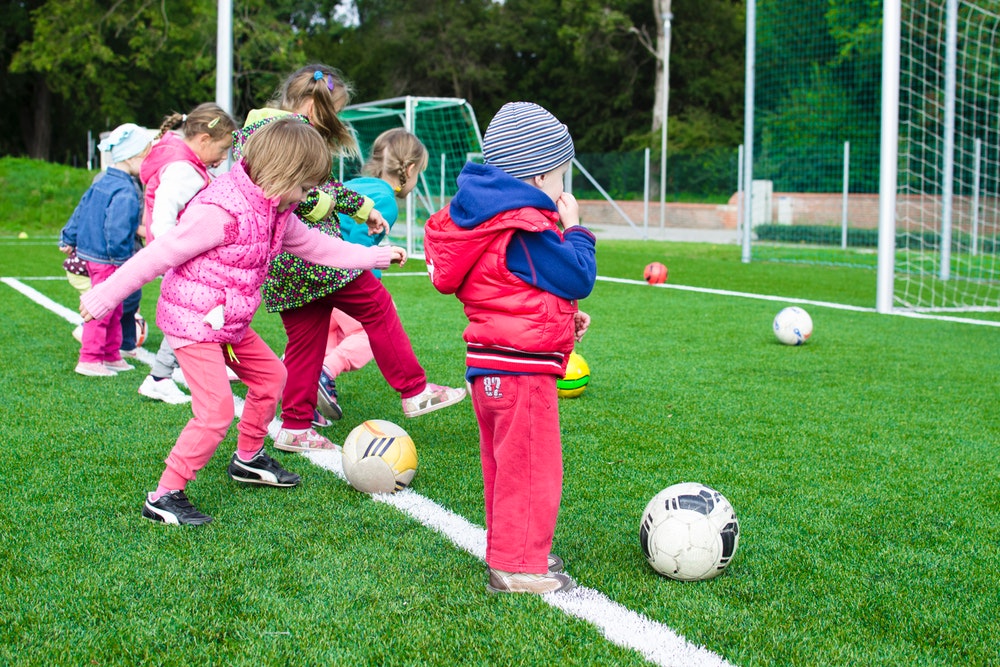Experts say that play is crucial to a child’s development — so important that in Article 31 of the United Nations Convention on the Rights of a Child, it states that each child has a right “…to rest and leisure, to engage in play and recreational activities appropriate to the age of the child and to participate freely in cultural life and the arts.”
That is why the best nurseries and other academic institutions integrate play in their curriculum. Research has shown that play is vital for a child’s development. Developmental milestones that mark a child’s progress can be facilitated through playing. Children who engage in either guided or free play at an early age, whether at home, in nurseries, or at formal schools, gain valuable knowledge that contributes to their growth.
What game shall we play today?
There are different ways a child can play. Since each child is unique, they also have different ways of expressing themselves. The role of parents, guardians, and teachers is to carefully observe each child’s preference when it comes to playing. This way, it is easier to connect with them and help them maximize the learning potential that playing brings.
Types of play that leads to the growth of a child’s development:
Creative Play
Creative play, for example, is a kind of play that encourages discovery and exploration. The best nursery curriculum would promote this kind of play so kids can learn through trial and error. Children often repeat an action just to check if they get the same reaction or result. This kind of play includes counting activities, memory games, telling jokes and memorizing rhymes.
Expressive Play
Creativity is also at work with expressive play. Children play through building things, creating, drawing, humming, singing, tapping, or writing. There are numerous opportunities to engage in this kind of activity so parents and caretakers should be open to letting their kids express themselves.
Imaginative Play
Children can also learn and develop through activities that fire up their imagination. Charades, dress-up games, or role-playing activities are forms of imaginative play that allow children to expand their minds.
Physical Play
Physical play is a more active kind of play where children can develop physical skills. They will crawl, jump, slide, dance, roll and run if given the chance. Whether it’s inside the nursery school facilities or out in wide, open spaces, allowing children to perform these movements can contribute to their growth and development.
Social Play
At around three years old, children will be most likely to look for playmates who are preferably their own age. Nurseries and preschools are the perfect environments for them to engage in social play. This is where building blocks together, playing relay or racing games, or playing house can be rich opportunities for kids to interact and learn from each other.
Key benefits of play to a child’s development
Different kinds of play certainly has an important role in a young child’s development and learning acquisition. Here are some of the key benefits of play to a child’s development:
1. Emotional development
Play helps children feel good. Kids who are relaxed learn better. As children interact through playing, they also learn skills such as how to play fairly, how to follow directions, and how to express themselves better through actions and words. By engaging in playful activities with other children, they learn how to better handle their emotions in various situations, such as when losing or winning in a game.
2. Cognitive development
A child’s cognitivity is also developed through play. Children learn to count, read, enrich their language and vocabulary, and improve their rational and thinking skills. The play opens up their minds and encourages them to be creative.
Through a different kind of play, they learn how to solve problems, identify right from wrong, and process their thoughts to arrive at a more sensible solution.
3. Physical development
Playing can serve as a rigorous exercise for kids. Running around, jumping, swinging, and other dexterous playtime activities can help develop their motor skills. It also builds endurance and improves balance, coordination, and strength.
Aside from helping them to get stronger muscles, the play also helps release excess energy which will help them eat and sleep better. Playing can be a beneficial way to promote health and fitness as they grow up.
4. Social development
Through play, children learn how to take turns, line up, and follow instructions. They learn how to be leaders or team members and discover how social etiquette and rules can lead to better interaction.
As they play with their schoolmates or other kids, they also learn how to share and say words such as “Please,” “Thank You,” and “I’m sorry.” By playing and spending time together, children may even forge friendships that may last for a lifetime.
More Than Just Child’s Play
Today’s fast-paced lifestyle has challenged the world of interactive play. Activities such as watching television or playing with electronic gadgets are taking over guided or free play activities.
Parents and guardians, however, should make it a point to include play in their child’s life. Enrolling them in schools that promote playtime activities as part of their curriculum can be one way of ensuring that they learn cognitive, emotional, physical, and social skills that are instrumental in their growth and development.
Also Read: Top Technology Stocks Billionaires are Buying Right Now

1 Comment